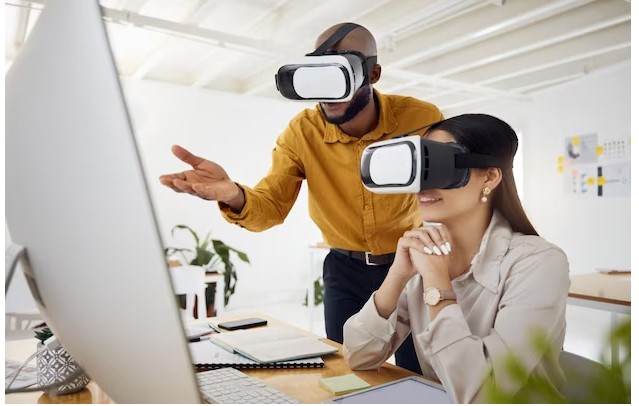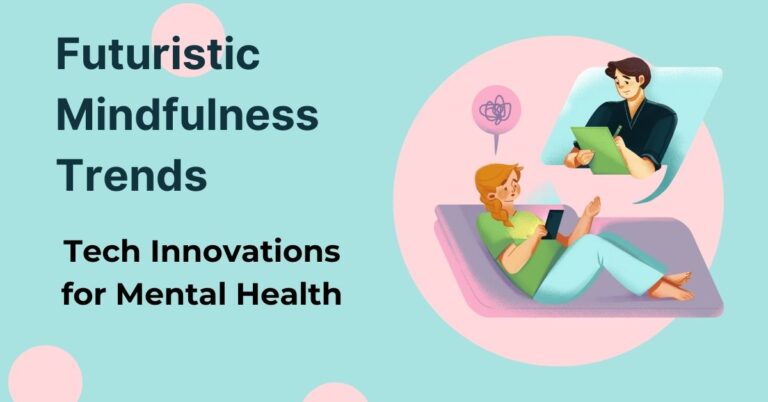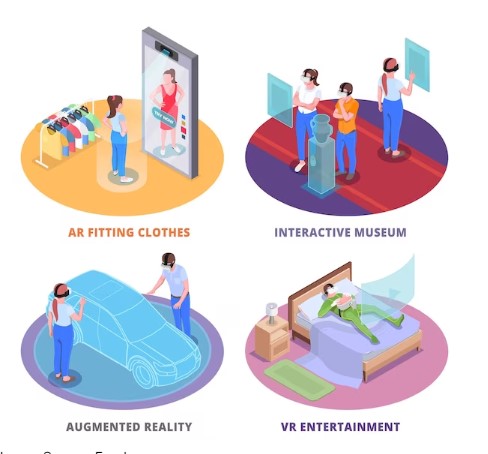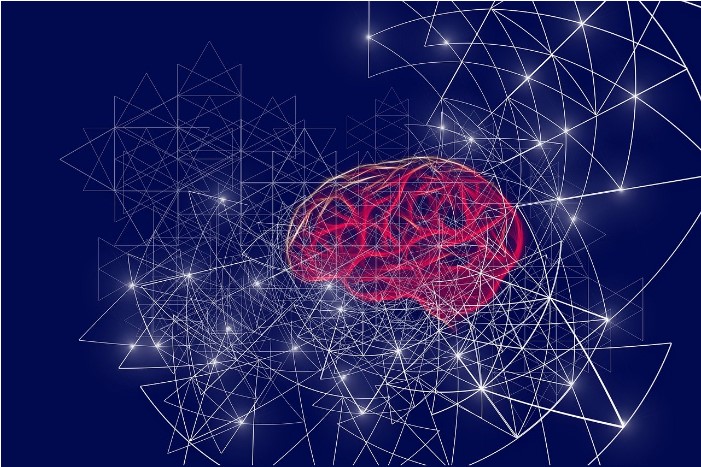Role of Virtual Reality in Personal Development and Training
Are you ready to take your personal development and training to the next level? Enter the world of virtual reality (VR), where immersive experiences bring learning to life like never before. From honing your leadership skills to mastering complex technical procedures, VR is revolutionizing the way we learn and grow.
In this article, we will explore the role of virtual reality in personal development and training. By leveraging cutting-edge technology, VR allows individuals to step into simulated environments, enabling them to practice and refine various skills in a realistic and safe space. Whether it’s simulating high-pressure situations or providing interactive tutorials, VR offers a range of applications that cater to different learning styles and objectives.
How VR is Transforming Personal Development and Training
Virtual reality has the power to transform personal development and training by providing a highly immersive and interactive learning experience. Traditional training methods often lack engagement, making it difficult for learners to retain information effectively. However, VR changes the game by creating a sense of presence and allowing learners to actively participate in their own learning journey.
One of the key advantages of VR is its ability to engage multiple senses simultaneously. Unlike traditional training methods that primarily rely on visual and auditory stimuli, VR can incorporate touch, motion, and even smell to create a truly immersive experience. This multisensory approach enhances the learning process by stimulating different parts of the brain, resulting in better knowledge retention and recall.
Moreover, VR enables learners to practice skills in a safe and controlled environment. For example, medical students can perform virtual surgeries without the risk of harming real patients, while employees can practice handling difficult customer interactions without the fear of negative consequences. This not only builds confidence but also allows learners to make mistakes and learn from them, ultimately accelerating their personal growth and development.
In addition, VR offers a level of interactivity that traditional training methods cannot match. Learners can actively engage with their virtual surroundings, manipulate objects, and interact with virtual characters or avatars. This hands-on approach fosters a deeper understanding of concepts and encourages critical thinking and problem-solving skills.
Advantages of Using VR in Personal Development and Training
The advantages of using virtual reality in personal development and training are numerous. Here are some key benefits that make VR an invaluable tool for learning and growth:
1. Enhanced Engagement and Motivation
Traditional training methods often struggle to capture learners’ attention and maintain high levels of engagement. VR, on the other hand, offers a highly immersive and interactive experience that naturally captivates learners. By providing a sense of presence and agency, VR keeps learners motivated and engaged throughout the training session, leading to better learning outcomes.
2. Realistic Simulations
One of the greatest strengths of VR is its ability to create realistic simulations. Whether it’s practicing public speaking in front of a virtual audience or conducting complex scientific experiments in a virtual laboratory, VR can accurately recreate real-world scenarios. This allows learners to gain practical experience and develop skills in a safe and controlled environment, without the risks associated with real-life training.
3. Personalized Learning
Every learner is unique, with different learning styles and preferences. VR can cater to these individual needs by offering personalized learning experiences. Learners can choose their own pace, explore different paths, and receive immediate feedback based on their actions. This adaptive learning approach ensures that learners receive the right level of challenge and support, maximizing their learning potential.
4. Cost and Time Efficiency
Traditional training methods often involve significant costs and time commitments. Travel expenses, venue rentals, and instructor fees can quickly add up, not to mention the time spent away from work or other commitments. VR eliminates many of these costs by providing a virtual training environment that can be accessed from anywhere, at any time. This makes VR a cost-effective and time-efficient solution for personal development and training.
5. Remote Learning and Collaboration
With the rise of remote work and distributed teams, the need for effective remote learning and collaboration tools has never been greater. VR offers a solution by enabling learners to connect and collaborate in a virtual space, regardless of their physical location. This not only facilitates knowledge sharing and teamwork but also enhances the sense of belonging and community among learners.
Case Studies: Successful Implementation of VR in Personal Development and Training
Numerous organizations and institutions have embraced virtual reality to enhance their personal development and training programs. Let’s take a look at some successful case studies that highlight the effectiveness of VR in various domains:
1. Walmart’s VR Training Program
Walmart, one of the world’s largest retailers, has implemented VR training programs to improve employee performance and customer satisfaction. By using VR simulations, employees can practice handling difficult customer interactions, such as dealing with an angry customer or resolving a complaint. This has led to increased confidence, better customer service, and ultimately, improved business outcomes.
2. Medical Training with VR
Medical education often involves extensive practical training, which can be challenging due to limited resources and ethical considerations. VR has emerged as a valuable tool in medical training, allowing students to perform virtual surgeries, practice medical procedures, and learn anatomy in a highly realistic and interactive environment. This hands-on experience in a safe space enhances students’ skills and prepares them for real-world medical challenges.
3. Soft Skills Development with VR
Soft skills, such as communication, leadership, and teamwork, play a crucial role in personal development and career success. VR offers a unique platform for developing these skills by providing immersive scenarios that replicate real-life situations. For example, VR can simulate a boardroom meeting where learners practice their presentation skills or a team-building exercise where they collaborate with virtual colleagues. This allows learners to refine their soft skills in a realistic and supportive environment.
Best Practices for Incorporating VR into Personal Development and Training Programs
While the potential of VR in personal development and training is immense, successful implementation requires careful planning and consideration. Here are some best practices to keep in mind when incorporating VR into your programs:
1. Identify Learning Objectives
Before diving into VR development, clearly define your learning objectives. What skills or knowledge do you want learners to acquire? By aligning VR experiences with specific learning outcomes, you can ensure that the technology is used effectively and efficiently.
2. Design Engaging Content
Creating engaging and immersive VR content is crucial for maximizing learning outcomes. Consider the user experience, interactive elements, and narrative structure when designing VR experiences. Engaging storytelling and realistic simulations can greatly enhance the effectiveness of the training.
3. Provide Adequate Training and Support
While VR can be intuitive for many users, some may require additional training and support to navigate the virtual environment effectively. Ensure that learners receive thorough instructions and guidance on using VR equipment and interacting with virtual scenarios. Provide technical support and troubleshooting resources to address any issues that may arise.
4. Evaluate and Iterate
Monitoring the effectiveness of VR training is essential for continuous improvement. Collect learner feedback, track performance metrics, and assess the impact of VR on learning outcomes. Use this data to refine your VR experiences and address any areas for improvement.
VR Tools and Technologies for Personal Development and Training
A variety of VR tools and technologies are available to facilitate personal development and training. Here are some popular options:
1. Headsets and Devices
VR headsets, such as Oculus Rift, HTC Vive, and PlayStation VR, provide the visual and auditory immersion required for VR experiences. These devices are equipped with motion tracking sensors and high-resolution displays, creating a realistic and immersive environment.
2. Controllers and Haptic Feedback Devices
Controllers and haptic feedback devices enable users to interact with the virtual environment. They provide a tactile experience by simulating touch and feedback, enhancing the sense of presence and realism.
3. VR Development Platforms
Various VR development platforms, such as Unity and Unreal Engine, offer tools and resources for creating VR experiences. These platforms provide a range of features, including 3D modeling, animation, and physics simulation, to bring virtual worlds to life.
4. VR Software Applications
Specialized VR software applications, such as medical simulators or language learning programs, offer targeted training experiences for specific industries or skills. These applications often provide a comprehensive curriculum and detailed feedback to support the learning process.
Challenges and Limitations of VR in Personal Development and Training
While VR has transformative potential, it also faces certain challenges and limitations. It’s important to be aware of these factors when considering VR for personal development and training:
1. Cost of Implementation
VR technology can be expensive, especially when it comes to high-quality headsets and devices. Additionally, creating custom VR content requires specialized skills and resources. Organizations need to carefully assess the cost-benefit ratio before investing in VR solutions.
2. Technical Limitations
VR technology is constantly evolving, but there are still technical limitations that can impact the user experience. Issues such as motion sickness, limited field of view, and resolution constraints can affect immersion and the overall effectiveness of VR training.
3. Accessibility and Inclusivity
Not everyone may have access to VR technology, especially in remote or economically disadvantaged areas. Ensuring equal opportunities for personal development and training requires considering alternative methods and formats that are accessible to a wider audience.
4. Ethical Considerations
As VR becomes more realistic and immersive, ethical considerations come into play. For example, creating realistic simulations of high-stress or dangerous situations may induce unnecessary anxiety or trauma in some individuals. It’s important to carefully design VR experiences that prioritize learner safety and well-being.
Future Prospects of VR in Personal Development and Training
The future of VR in personal development and training looks promising. As technology continues to advance, we can expect more affordable and accessible VR solutions. Improved hardware, such as wireless headsets and higher-resolution displays, will enhance the immersive experience and address some of the current limitations.
Additionally, advancements in artificial intelligence and machine learning can further enhance personalized learning in VR. AI algorithms can analyze learner behavior and provide real-time feedback, adapt the training program to individual needs, and create dynamic and adaptive virtual environments.
Furthermore, the integration of VR with other emerging technologies, such as augmented reality (AR) and haptic feedback systems, will unlock new possibilities for immersive and interactive learning experiences. These synergies will enable even more realistic simulations and enhance the effectiveness of personal development and training programs.
Resources for Exploring VR in Personal Development and Training
If you’re interested in exploring virtual reality for personal development and training, here are some resources to get you started:
- Online VR Communities: Join online communities and forums dedicated to VR, such as r/virtual reality on Reddit or VR/AR Association, to connect with industry professionals and enthusiasts. These communities can provide valuable insights, tips, and resources.
- VR Training Platforms: Explore VR training platforms like STRIVR, Virtual Speech, or Alchemy VR that offer a wide range of VR training programs for various industries and skills. These platforms often provide ready-to-use VR content and comprehensive analytics to track progress.
- VR Development Courses: If you’re interested in creating your own VR experiences, consider taking online courses or tutorials on VR development. Websites like Udemy, Coursera, or Unity Learn offer courses on VR development using popular tools and platforms.
- VR Conferences and Events: Attend VR conferences and events, such as VRX 2022 or Oculus Connect, to stay updated on the latest trends and advancements in the VR industry. These events often feature keynote speakers, workshops, and hands-on demonstrations.
Conclusion: The Promising Future of VR in Personal Development and Training
Virtual reality is poised to revolutionize personal development and training by providing immersive, interactive, and personalized learning experiences. With its ability to engage multiple senses and create realistic simulations, VR offers a powerful tool for enhancing learning outcomes and skill development. While challenges and limitations exist, ongoing advancements in VR technology and the integration with other emerging technologies hold great promise for the future.
Embrace the immersive learning revolution and unlock your full potential in today’s digital age. Whether you’re an individual looking to enhance your skills or an organization seeking innovative training solutions, virtual reality is ready to take you on a transformative journey of growth and development. Step into the virtual world and experience the future of personal development and training firsthand.





